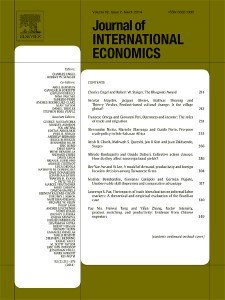
Beetsma, R., Furtuna, O., Giuliodori, M. and Mumtaz, H. (2021). Revenue- versus spending-based fiscal consolidation announcements: multipliers and follow-up Journal of International Economics, 131:.
-
Affiliated authors
-
Publication year2022
-
JournalJournal of International Economics
Using a new narrative dataset on fiscal consolidation announcements for thirteen EU countries over the period 1978–2013, a panel VAR analysis shows that revenue-based announcements appear more credible, but affect economic activity more adversely than do spending-based announcements. Higher revenue multipliers and, to a lesser extent, larger actual follow-up following a revenue-based announcement help to explain the difference. The uniqueness of our dataset allows to control for anticipation effects of budgetary implementation and variables that respond quickly to news. The main findings are similar if we include in the specification open-economy variables.